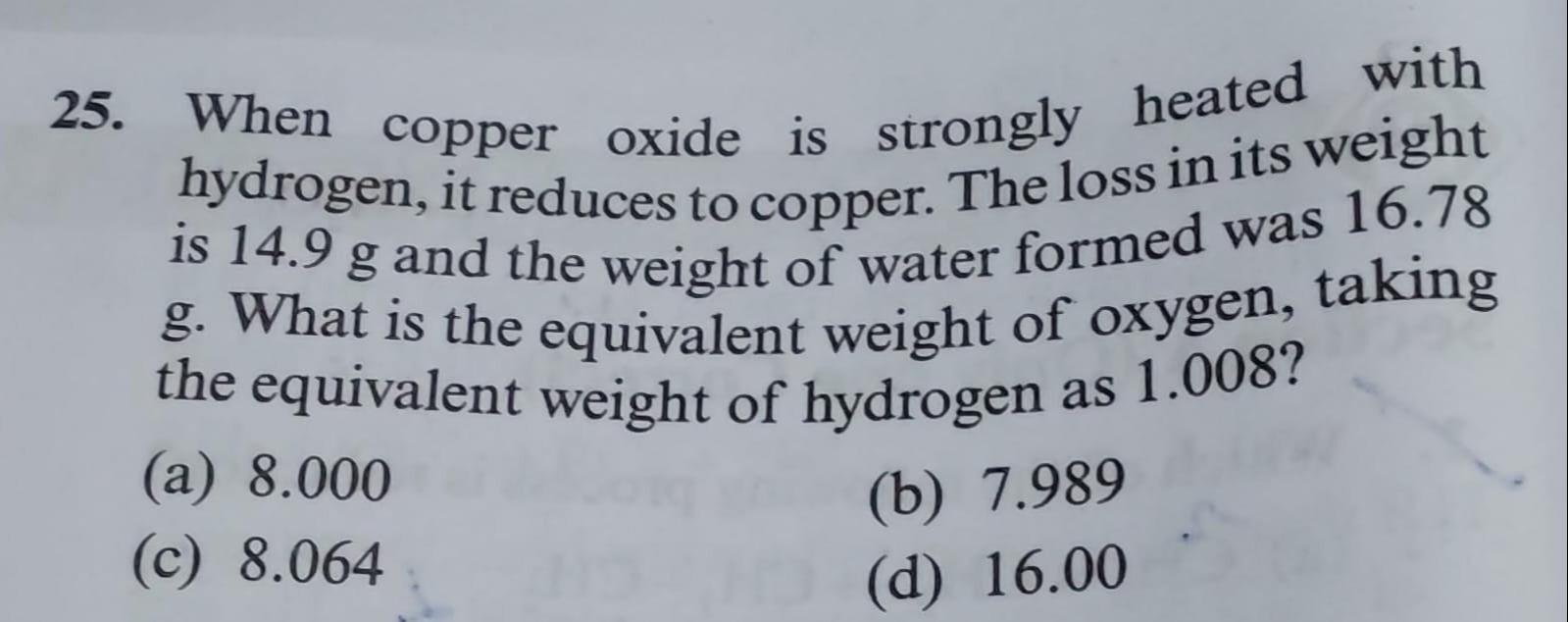Question
Question: When copper oxide is strongly heated with hydrogen, it reduces to copper. The loss in its weight is ...
When copper oxide is strongly heated with hydrogen, it reduces to copper. The loss in its weight is 14.9 g and the weight of water formed was 16.78 g. What is the equivalent weight of oxygen, taking the equivalent weight of hydrogen as 1.008?

8.000
7.989
8.064
16.00
7.989
Solution
The reaction is: CuO + H₂ → Cu + H₂O. The loss in weight of copper oxide is due to the removal of oxygen. Weight of oxygen removed = 14.9 g. The weight of water formed is 16.78 g. The mass of hydrogen that reacted to form water is the difference between the mass of water formed and the mass of oxygen: Mass of hydrogen = Weight of water - Weight of oxygen Mass of hydrogen = 16.78 g - 14.9 g = 1.88 g.
Using the law of equivalents: Equivalent weight of oxygenMass of oxygen=Equivalent weight of hydrogenMass of hydrogen Let EO be the equivalent weight of oxygen and EH be the equivalent weight of hydrogen. EO14.9 g=1.0081.88 g Solving for EO: EO=1.88 g14.9 g×1.008 EO=1.8815.0192 EO≈7.988936 Rounding to three decimal places, the equivalent weight of oxygen is 7.989.
